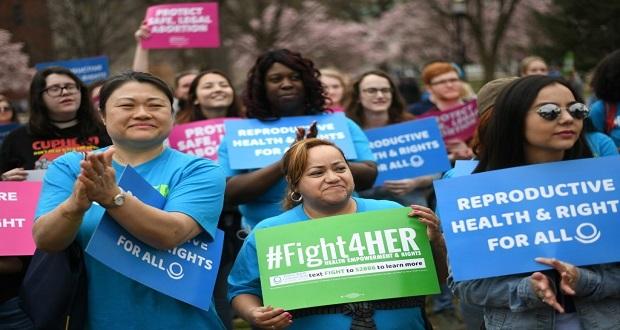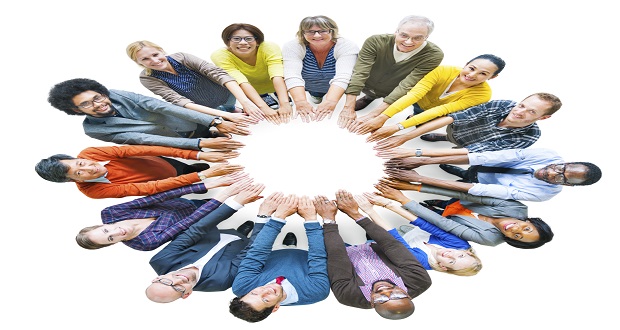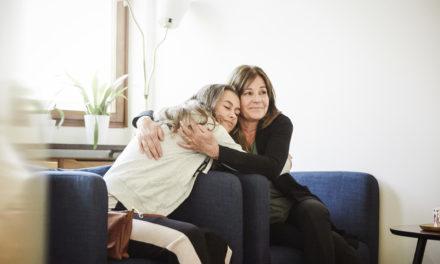
Over twenty states have passed, or are in the process of introducing, restrictive anti-abortion legislation. More than 300 proposals were introduced in states from January to March, according to the Guttmacher Institute. Georgia, Mississippi, Ohio and Kentucky passed bills this year that ban abortions after a fetal heartbeat is detected. Alabama’s “Human Life Protection Act” was signed into law this week.
Experts say there is a clear shift in strategy with proposed bills that are much more restrictive than we have seen in the past decade. For example, Alabama’s law bans all abortions in the state except when “abortion is necessary in order to prevent a serious health risk” to the woman. It criminalizes the procedure, reclassifying abortion as a Class A felony, punishable by up to 99 years in prison for doctors. Under the law, attempted abortions will be reclassified as a Class C penalty.
Those who are advocating for these new restrictions are likely hopeful that the more conservative Supreme Court will once again be tasked to decide, putting Roe v. Wade in jeopardy. On Jan. 22, 1973, the Supreme Court handed down the defining decision in Roe v. Wade that a woman’s right to make her own medical decisions, including the choice to have an abortion, is protected under the 14th amendment. As we know, Roe v. Wade has come under attack regularly since then. What is different about this recent trend is that it appears to be much more coordinated—an effort to cajole the higher courts to get involved. Previous efforts were not so harsh as to call for bans on abortions, but rather introduced legislation that would make access more difficult.
Roe v. Wade has come under attack regularly. What is different about this recent trend is that it appears to be much more coordinated—an effort to cajole the higher courts to get involved. Click To TweetAt the heart of the so-called “heartbeat bills” appears to be a strategic effort by anti-abortion rights groups to eventually overturn Roe v. Wade; they think there is a much better chance of this happening with a majority conservative Supreme Court. Some experts think it is a long-shot that The Supreme Court will have an appetite to take on this issue again. Even so, it is telling that there is so much renewed traction in trying to dilute or even overturn the provisions in Roe v. Wade.
I completely respect those who support a pro-life worldview. I believe that everyone has the right to exercise their belief in that regard. I also respect pro-choice advocates and their right to exercise their belief. The Supreme Court handed down a definitive 7-2 ruling in 1973 that women have the right to make all of their own medical decisions as guaranteed by the 14th Amendment. I do not believe that it is the right of the government to tell women what they can and cannot do with their bodies. If the option of aborting an unwanted pregnancy is against a woman’s religious or moral beliefs, then she can choose not to do so. Those who believe that they should impose their beliefs on all women based on scriptural interpretations should leave such judgment to the highest power…God.
There are many reasons why a woman might want an abortion that are personal and private and not the business of the government, or anyone else for that matter. Abortions have been performed—legally and illegally—since the beginning of time. Prohibiting abortions will only mean that women in desperation will find a different, unsafe way to get the service performed. Women with the means to do so have long had the privilege of getting this procedure done safely, even when there were laws against abortions. Meanwhile, whether or not abortion was legal throughout history, women of lower socio-economic means have always been at greater risk of not being able to have this procedure done in a medically safe environment.
Whether or not abortion was legal throughout history, women of lower socio-economic means have always been at greater risk of not being able to have this procedure done in a medically safe environment. Click To TweetThe majority of those fighting to restrict abortions are men. The majority of those who could potentially decide the fate of Roe v. Wade are men. I question their capability to fully understand the complexities and the emotional impact on a woman who is facing such a decision. Some of the very same people who oppose abortions are also in favor of welfare reforms that would make it more difficult for low-income single mothers to receive needed services for themselves and their children. This prompts the question: are these children’s lives really those people’s priority?
Some of the very same people who oppose abortions are also in favor of welfare reforms that would make it more difficult for low-income single mothers to receive needed services for themselves and their children. Click To TweetI do not believe that most women make the decision to have an abortion easily. Women need to have places and opportunities to receive objective medical and psychological services to support them through these difficult reproductive decisions.
Let the law of the land stand and let’s leave it to one’s God to decide if abortions violate the teachings of the religion.


















